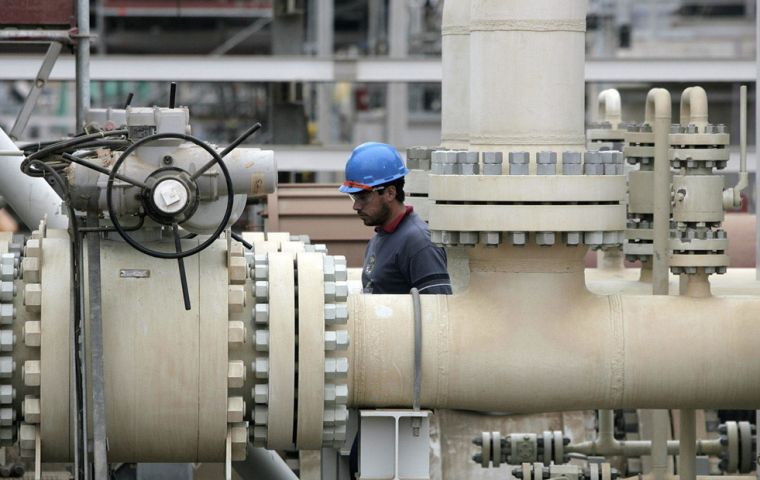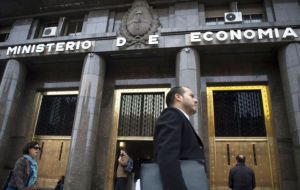MercoPress. South Atlantic News Agency
Argentina sued again by hedge fund on bonds tied to GDP growth
 After its meltdown Argentina offered to exchange the defaulted debt for new bonds, at a sharp decrease in value, in 2005 and 2010. (Referencial)
After its meltdown Argentina offered to exchange the defaulted debt for new bonds, at a sharp decrease in value, in 2005 and 2010. (Referencial)  As a sweetener for the deal, investors also got GDP warrants that pay off when the country’s economy expands by more than 3% a year
As a sweetener for the deal, investors also got GDP warrants that pay off when the country’s economy expands by more than 3% a year Aurelius Capital Management LP, one of the lead hedge funds that settled a massive litigation over defaulted bonds with Argentina in 2016, is suing the country again, this time over US$ 84 million in payments it says the nation owes. The case is Aurelius Capital Master Ltd. v. the Republic of Argentina, 19-cv-351, U.S. District Court, Southern District of New York (Manhattan).
The suit is leagues away from the threat Argentina faced after it defaulted on US$ 95 billion in sovereign debt in 2001. But the bill could mount if the complaint succeeds and others join the fray.
After its meltdown in the new millennium, Argentina offered to exchange the defaulted debt for new bonds -- at a sharp decrease in value -- in 2005 and 2010 and struck a deal with about 92% of the bondholders.
As a sweetener for the deal, investors also got GDP warrants that pay off when the country’s economy expands by more than 3% a year, and received payments on those warrants every year from 2005 to 2011 except 2009, according to the complaint, which Aurelius filed on Monday in Manhattan federal court.
Now, Aurelius claims Argentina failed to properly calculate when payments were triggered and owes it US$ 83.7 million, including interest.
The conflict arises from a change the Argentine government made under president Cristina Fernandez, who in March 2014 altered the base year for GDP to 2004 from 1993, reducing growth in 2013 to 3%, almost half the previously forecast pace and below the trigger for a warrant payment that year.
In the lawsuit, Aurelius says it should have received a payment for 2013, with data from the economic activity index used to measure growth, and that a variable ratio should have been used to determine the payment.
Siince 2005, investors have received six payments totaling 18 cents per warrant (on the dollar) as the Argentine economy boomed. The warrants can pay a maximum of 48 cents until they mature in 2035. The dollar-denominated warrants were little changed on Monday, with those issued in 2005 at 4.3 cents on the dollar, down from as much as 11.9 cents in early 2016, as the Argentine economy has declined.




Top Comments
Disclaimer & comment rulesCommenting for this story is now closed.
If you have a Facebook account, become a fan and comment on our Facebook Page!